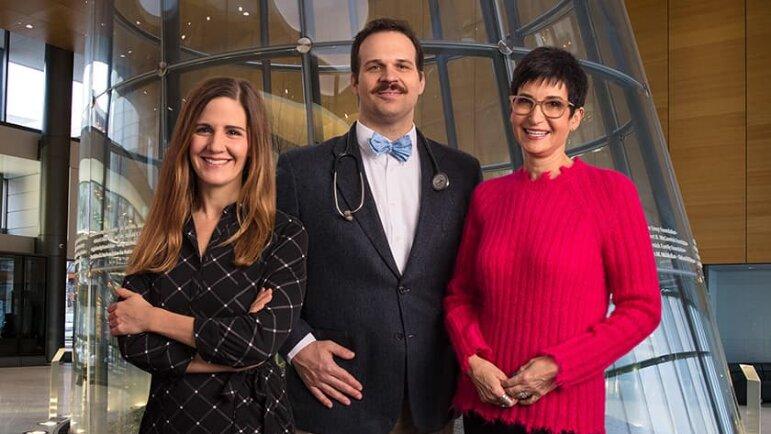According to the National Institute of Drug Abuse, substance use disorders cost the U.S. more than $740 billion annually due to the crime, lost work productivity and health care expenses associated with addiction. At Rush, clinicians, researchers and faculty tackle the problem of addiction from multiple angles, embracing a practical, nonstigmatizing, person-based approach to prevention, screening and intervention.
Exploring alternatives to opioids
As a researcher, clinical psychologist John Burns, PhD, focuses on the management of chronic pain, a condition that often leads to opioid misuse and abuse. “My work focuses on changing how people look at their pain and how they can make changes in their behavior to alleviate their pain,” Burns says. “Physical therapy, exercise, cognitive behavioral therapy, yoga, Tai Chi — these are all preferred ways to manage chronic pain as opposed to opioids.”
But these approaches — especially CBT, which the CDC recommends as the first line of treatment — aren’t always accessible. That’s why Burns also considers other approaches, such as mindfulness, as additional pain management tools. In addition, he is researching the protective nature of endogenous opioid function, or what’s known as runner’s high, in reducing chronic pain. Ultimately, he hopes to give health care providers evidence-based alternatives to prescribing opioids.
Training physicians
Addiction medicine specialist Gail Basch, MD, is taking the lessons learned from her years of caring for patients with addiction disorders in the clinical setting and using them to train medical students, residents and fellows. She has seen tremendous change since her own training.
“When I did my residency more than 30 years ago, we rarely diagnosed or treated substance use disorders,” she says. “Today, our students and residents do that and more, including prescribing the latest FDA-approved medications for alcohol, tobacco and opioid use disorders. They learn to avoid stigmatizing terms, recognize the importance of provider and patient teamwork, and use a disease model. We understand now that absolute abstinence is not always the endgame — patients do best with a menu of choices.”
Rush’s substance use intervention team
The Substance Use Intervention Team at Rush, or SUIT, embraces this philosophy. SUIT — which is led by co-directors Henry Swoboda, MD, toxicologist, and Kathryn Perticone, APN, MSW, psychiatric advance practice nurse — is a consultation service of physicians trained in addiction medicine, advanced practice nurses and registered nurses, licensed social workers and pharmacists. They collaborate to identify and treat patients at risk for addiction. Each patient presenting to the Emergency Department or admitted as an inpatient at Rush is assessed for risk at the bedside during the admission process.
“By embedding screening questions related to substance use in the admission questionnaire, we hope to normalize these questions and decrease stigmatization,” Perticone says. “Substance overuse and the illnesses that bring patients to the hospital are often interrelated, so we want to flesh out that information as early as possible so we can care for the whole patient and recommend the best interventions possible.”
If the patient’s answers signal a possible issue, the SUIT team’s social workers perform a more comprehensive interview. When those interviews reveal a substance use disorder, the SUIT team consults with the patient. Based on the patient’s readiness, the team works with the patient to develop a treatment plan, whether that’s prescribing medications for alcohol or opioid addiction, naxalone for potential opioid overdose, referring the patient to Rush’s addiction medicine outpatient clinic, or another appropriate intervention.
“Increasing access to treatment for substance disorders in the hospital, at the first point of contact, is a huge tool in combating these disorders,” Swoboda says. “And how we do it here at Rush is incredibly unique.”
Another key component to SUIT: outreach and education. For example, the team collaborates with other staff to develop emergency room protocols and ensure addiction medications are added to the formularies. They also include addiction medicine fellows in their services and, next year, plan on having ER residents rotating with them.
“Everything we do at Rush is geared toward creating better outcomes,” Perticone says. “Our goal is to make patients less likely to overdose and decrease the cycle of ongoing addiction and readmisssions.”

